Guest journey from interview with Swedish hotel employee.
Future cultivation
Idun is a hydroponic growing module designed for flexibility, usable as a standalone unit or integrated into a bar counter system. The goal was to create a solution that allows hotel guests to understand and feel involved in local food cultivation. The product enhances transparency and guest engagement regarding food origins, while also reducing climate impact through a controlled growing environment where the users can grow the same number of plants all year around, minimizing the risk of food waste. Without the use of pesticides and a circular water system, Idun offers efficient small-scale gardening with minimal resource consumption.
Project Information
In a time of increasing climate change and less resources, people are faced with challenges to change their daily habits to live more sustainable. Despite growing environmental awareness, many struggle to put knowledge into practice. A large part of climate change is affected by how food is produced, distributed, and consumed. Growing locally can reduce environmental impact in all stages, with less transportation, minimal waste, and no use of pesticides. An industry that has not largely adopted local cultivation is the hotel industry, where more and more customers, and society, are demanding more sustainable tourism and travel alternatives. The focus of this project is therefore on a green transition in hotels and exploring hotel experiences where guests feel engaged in supporting sustainable and local food production.
Methods
The design process included desktop research, field trips and interviews with experts about local cultivation solutions. The process also investigated how to create guest experiences in hotel contexts through a user survey and interviews with hotel staff and owners. A general costumer journey for hotel guests was mapped out to identify points of interaction where cultivation could be integrated. A function list was made based on the needs and wishes from hotel guests, hotel staff, and plants. The concept development was initiated through creative workshops with other students. The concepts were evaluated using tools such as four-field matrices, Kesselring analysis, and feedback from the project partner, Swegreen, as well as hotel staff.
Result
The outcome is a hydroponic (growing plants soil-free in water) growing module designed for flexibility, usable as a standalone unit or integrated into a bar counter system. The product enhances transparency and guest engagement regarding food origins, while also reducing climate impact through minimized food waste and low resource consumption. From herbs to tomatoes, there is a large variety of possible plants to grow in the garden. The seeds are planted in small bits of stone wool for structure, which is needed when growing in hydroponics, and then placed in water filled trays on shelves in the growing module. For easy maintenance, technical parts such as watering, nutrition, light and air circulation is automatically controlled. The users can easily adjust simpler technical settings through an app, for example dimming lights or turning on or off power. The app also allows to schedule harvest and planting.
In collaboration with:

UID25 | Emelie Andersson – Grad project presentation
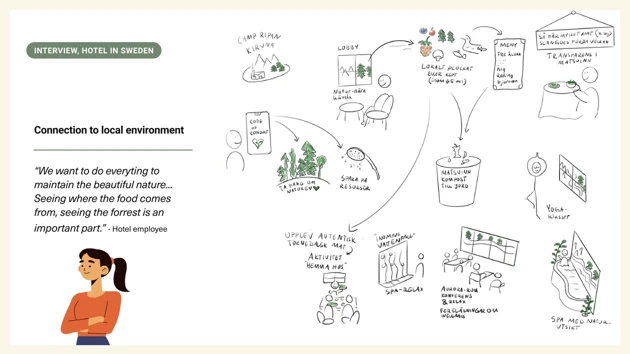
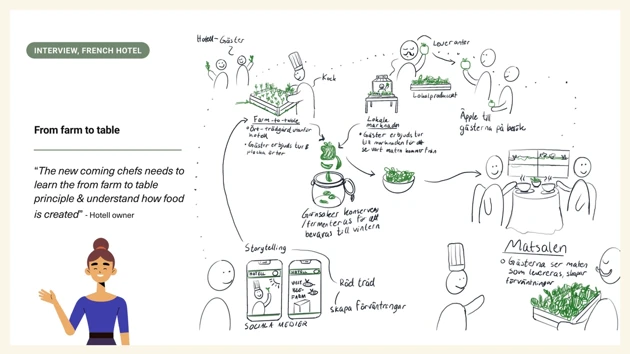
Guest journey from interview with French hotel owner.
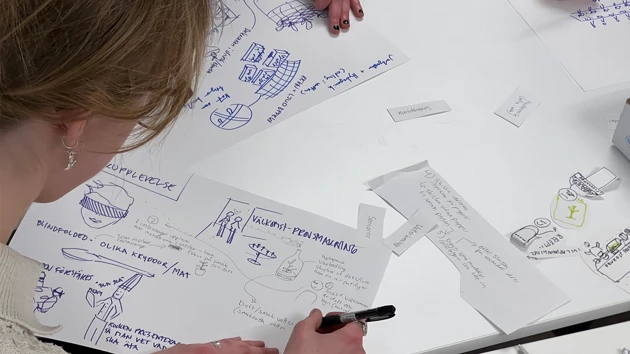
Creative ideation workshop.
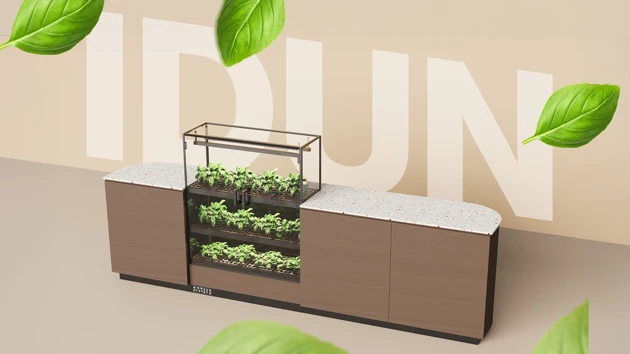
Result: Hydroponic Garden module.
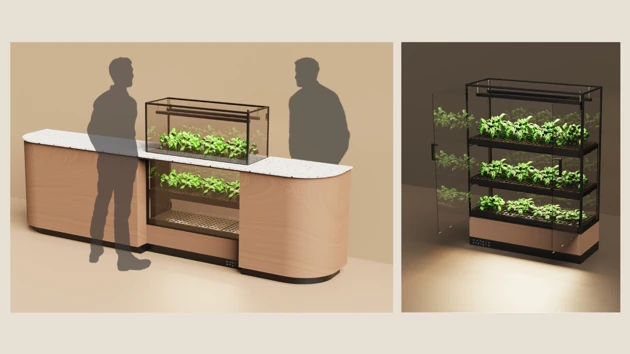
Follow the cycle from seed to plant.
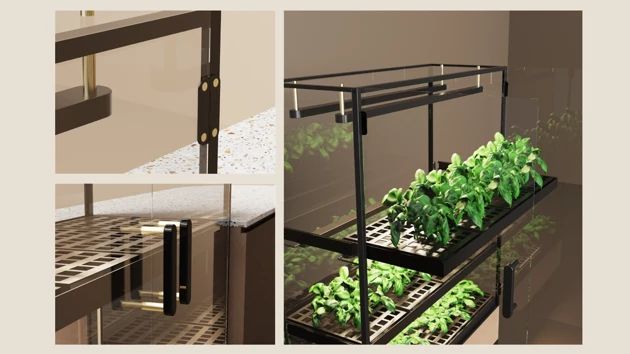
Construction in anodised aluminium & brass details.
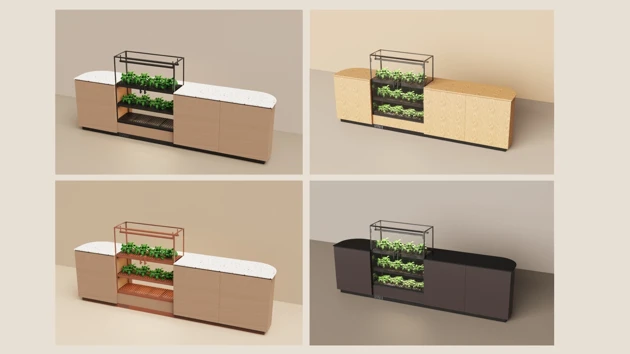
Adaptable exterior
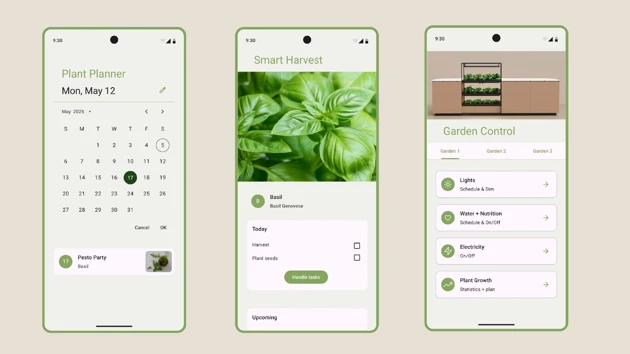
App for easy plant planning and technical settings.










